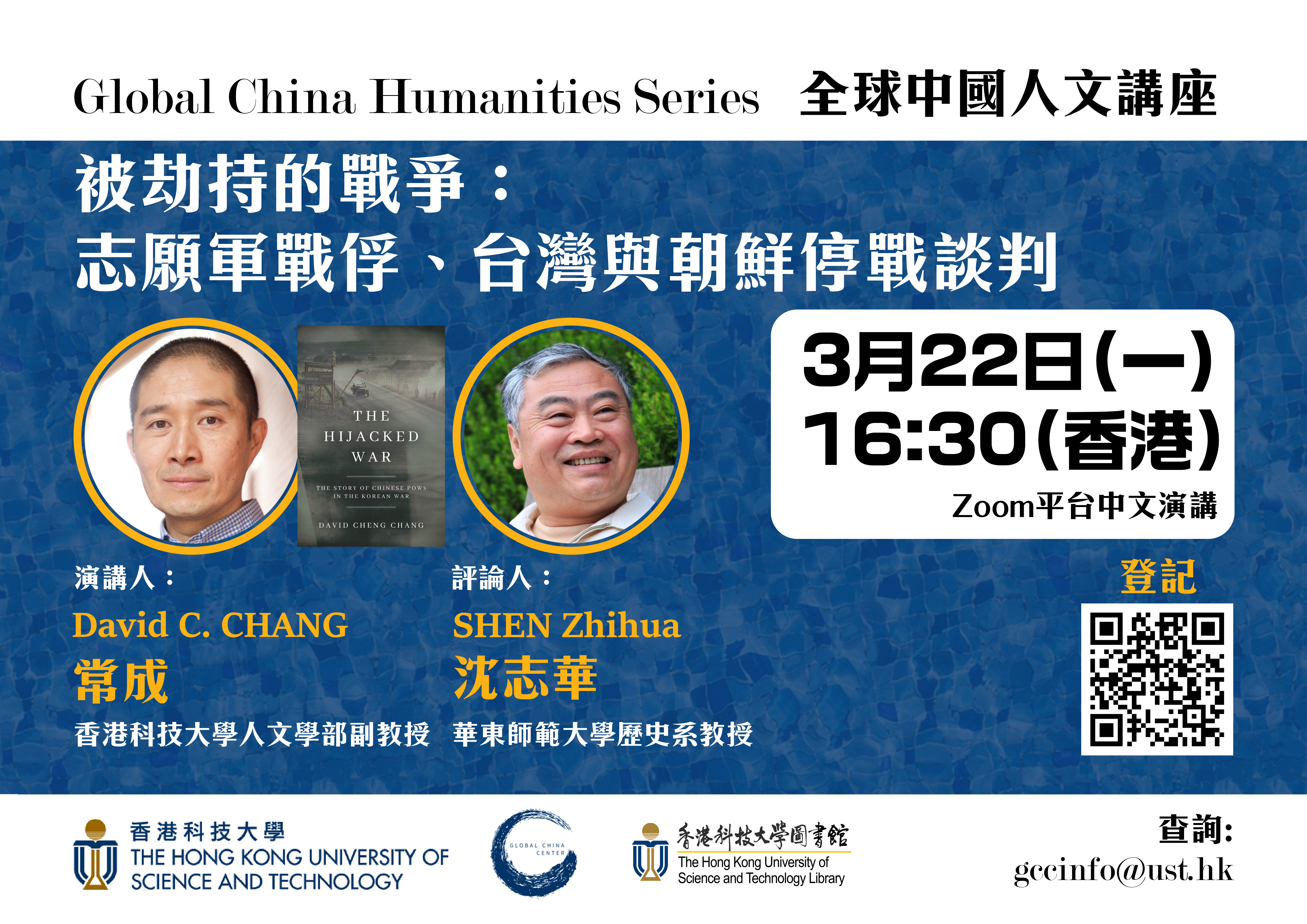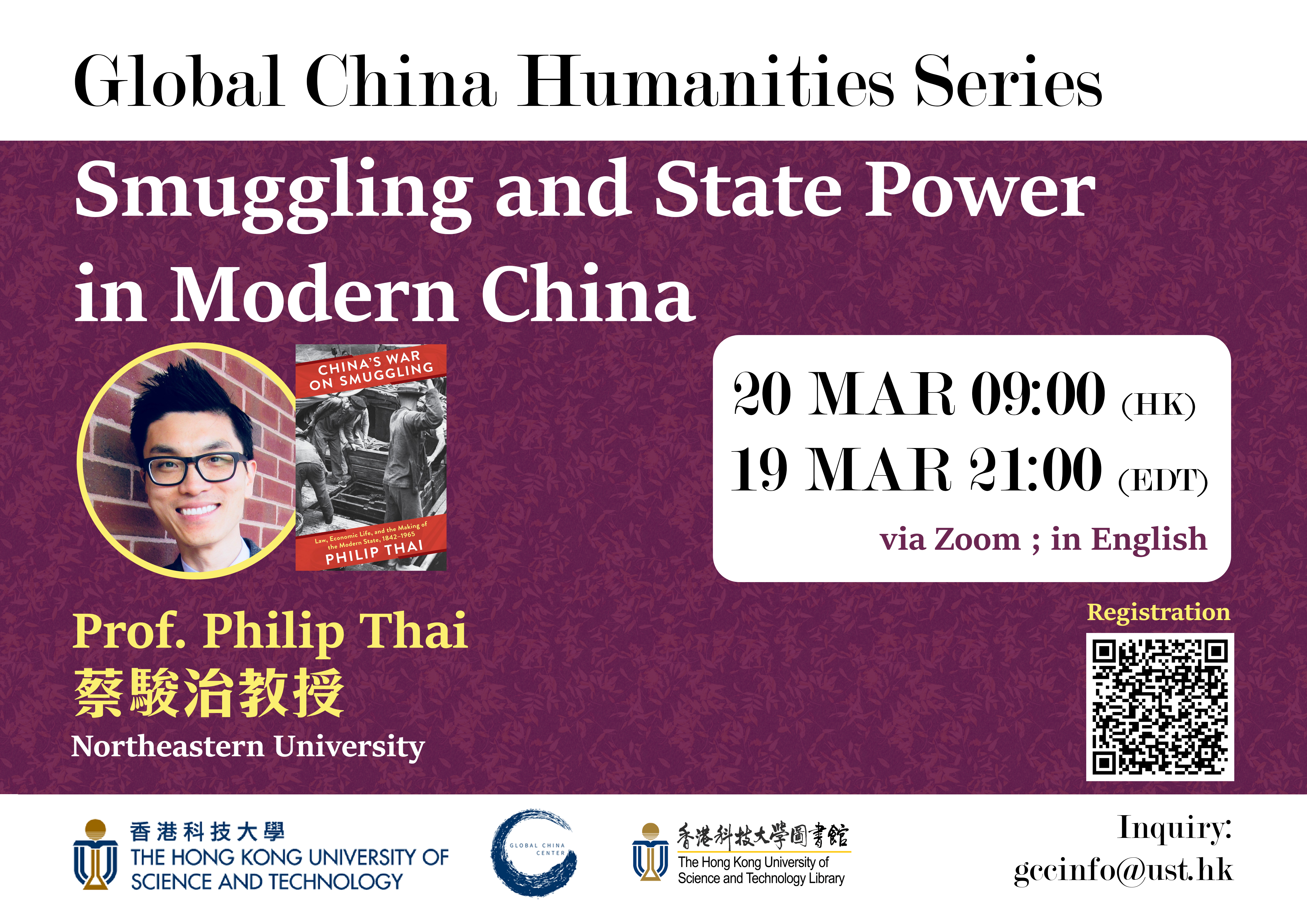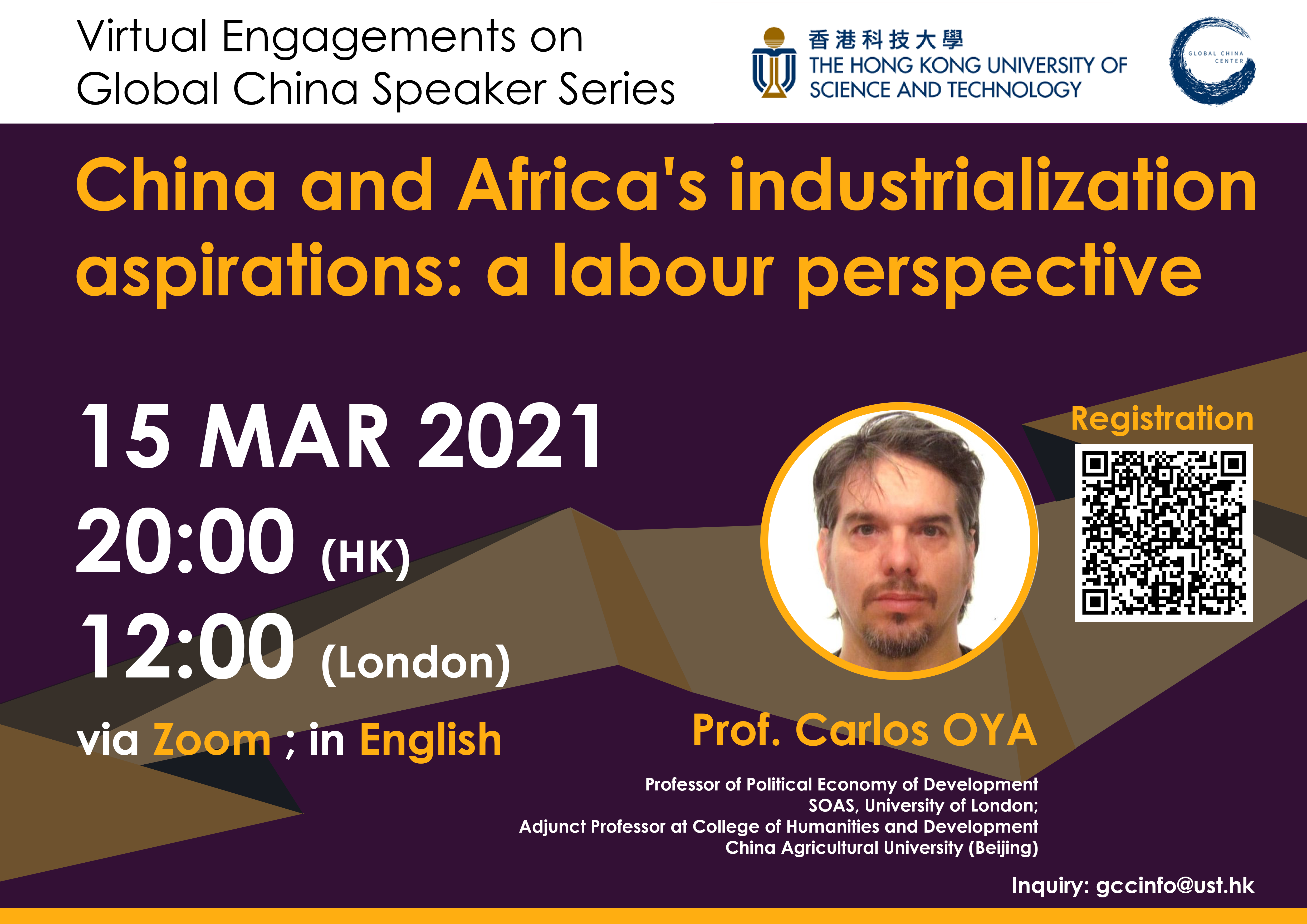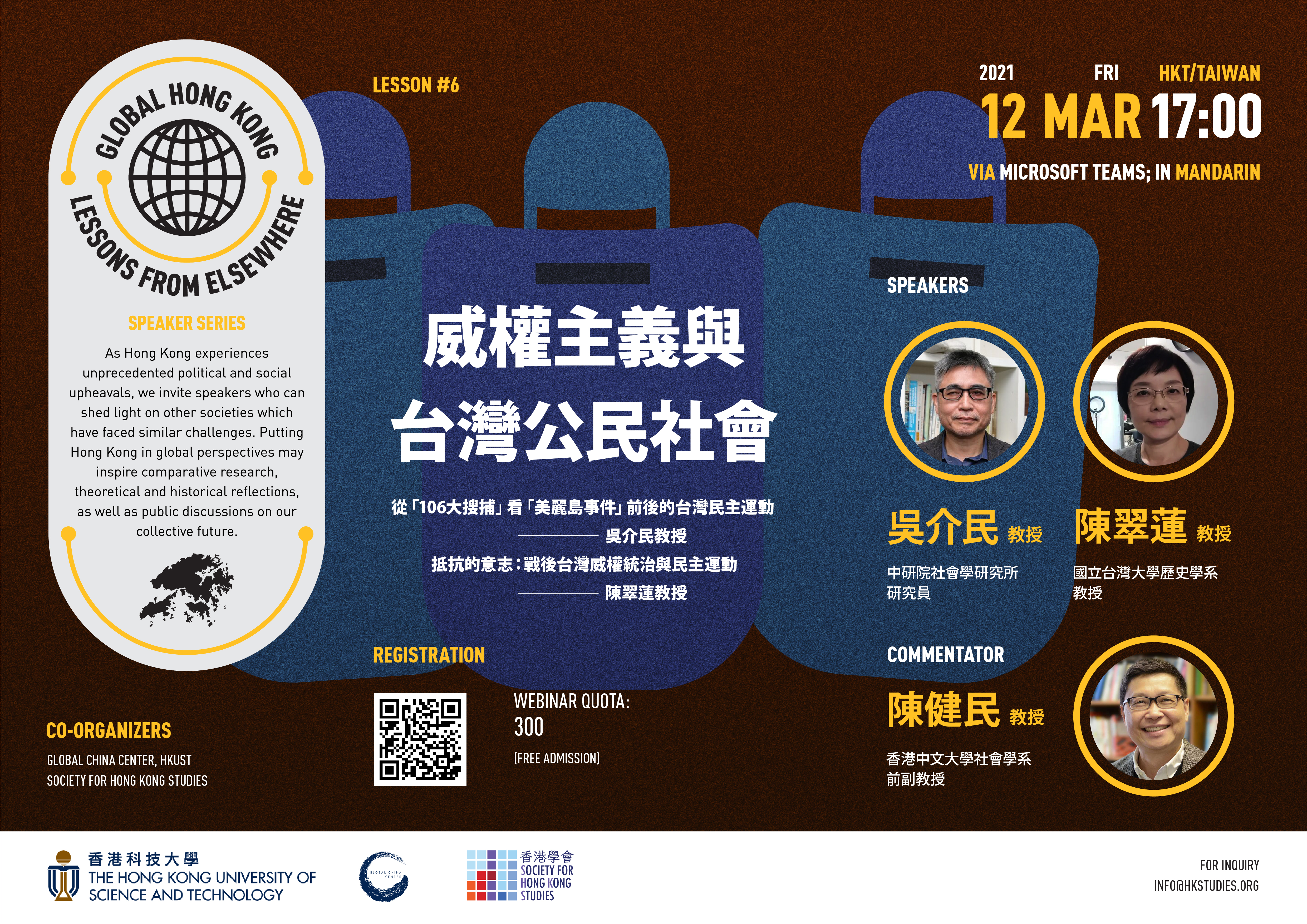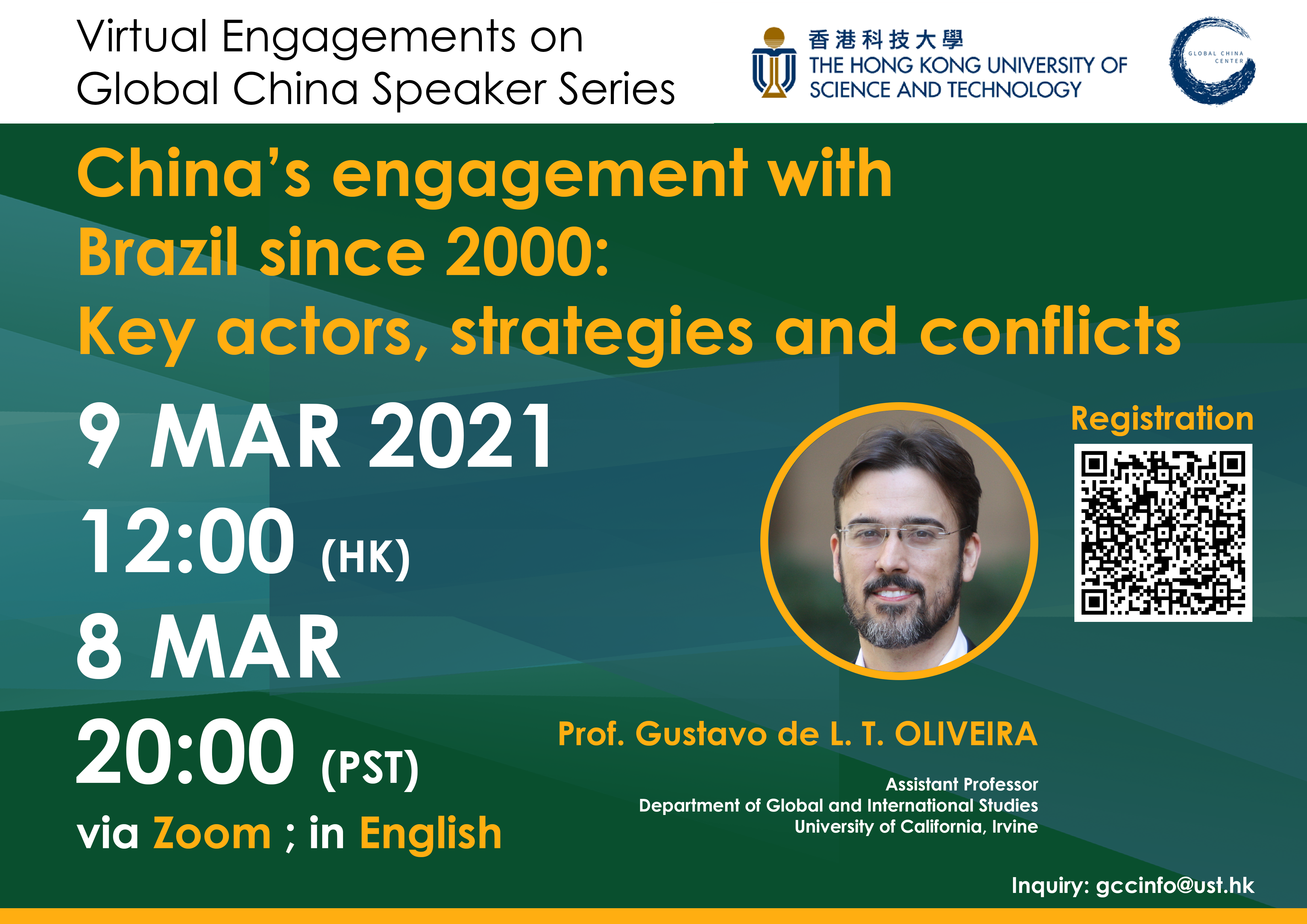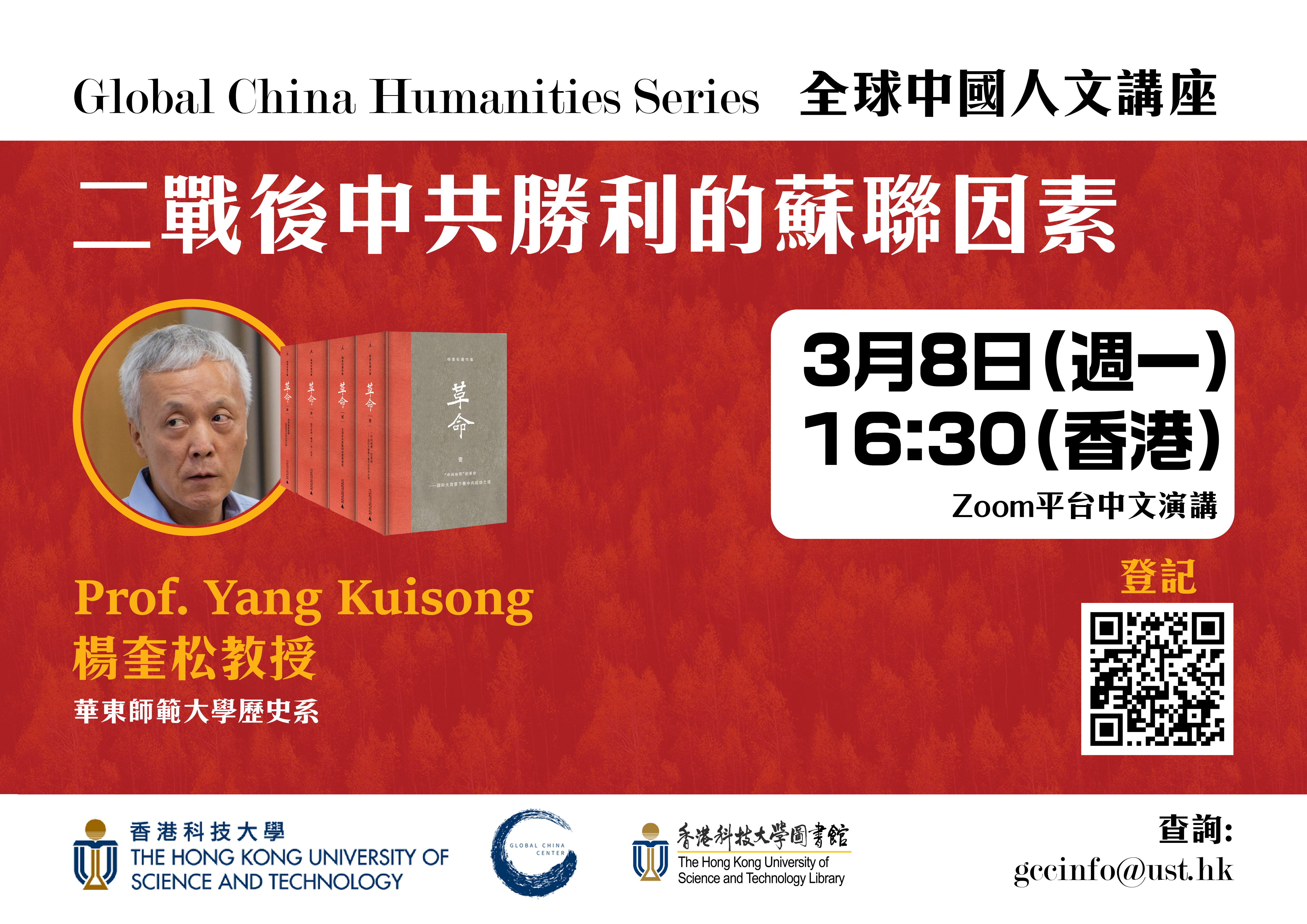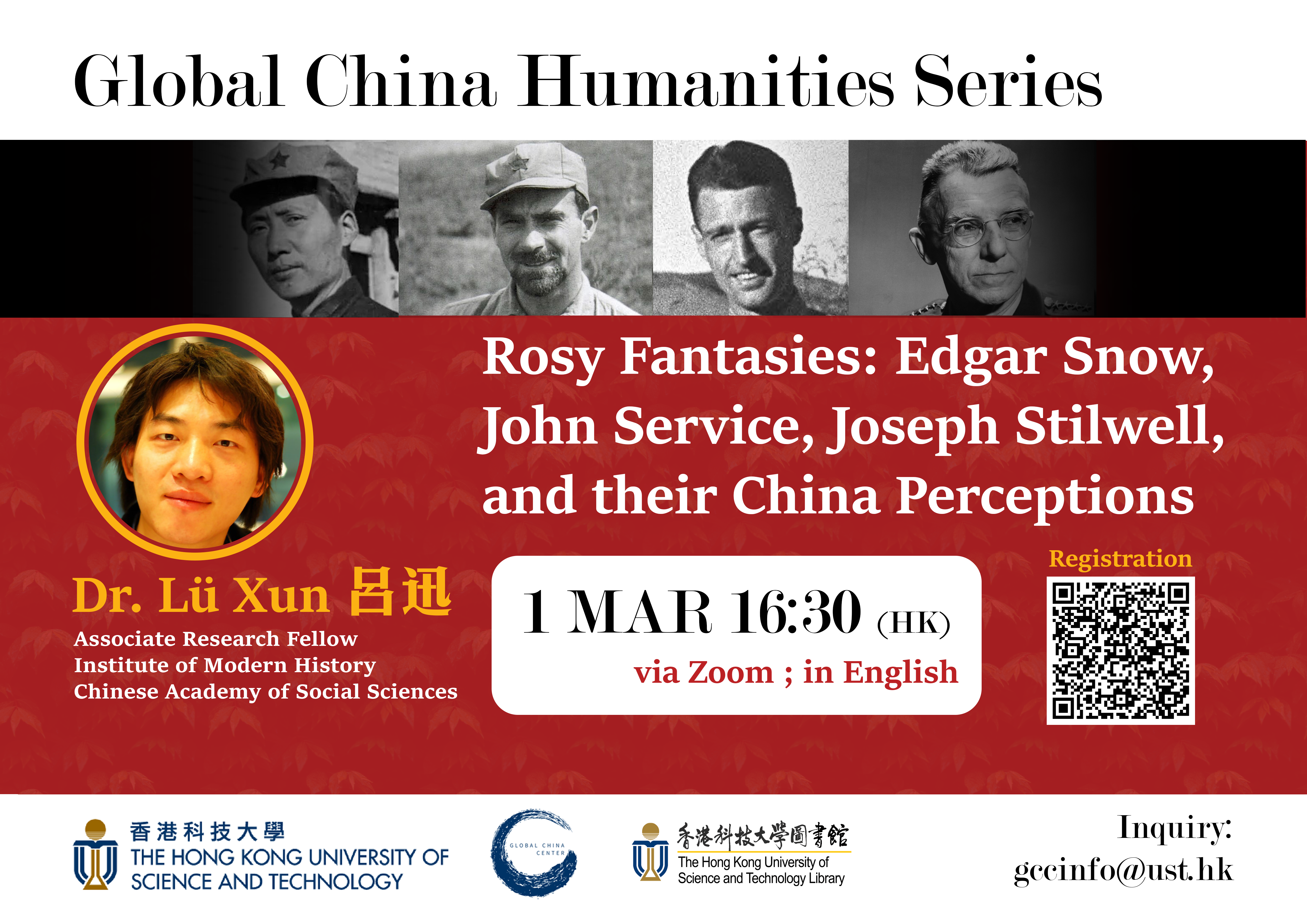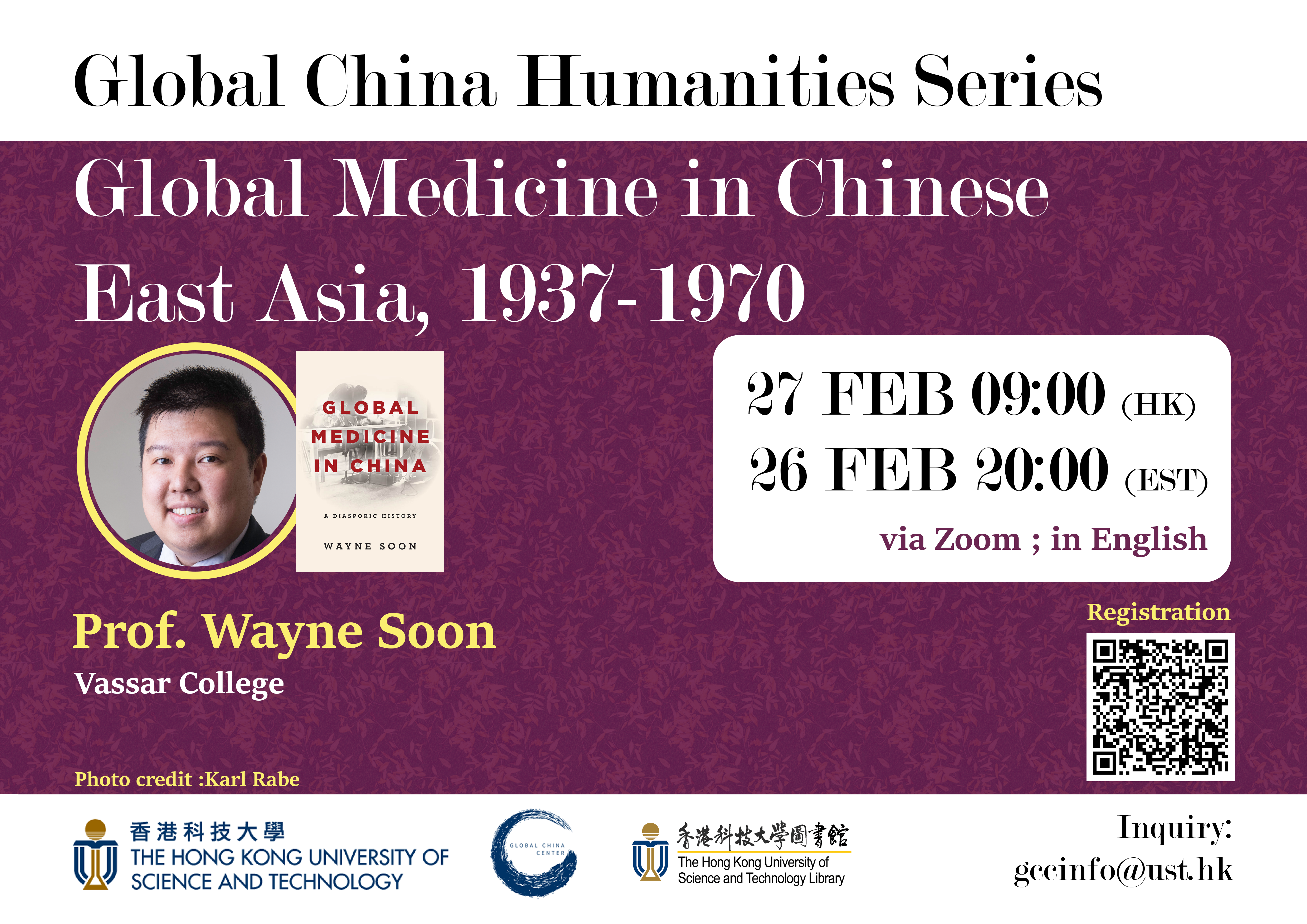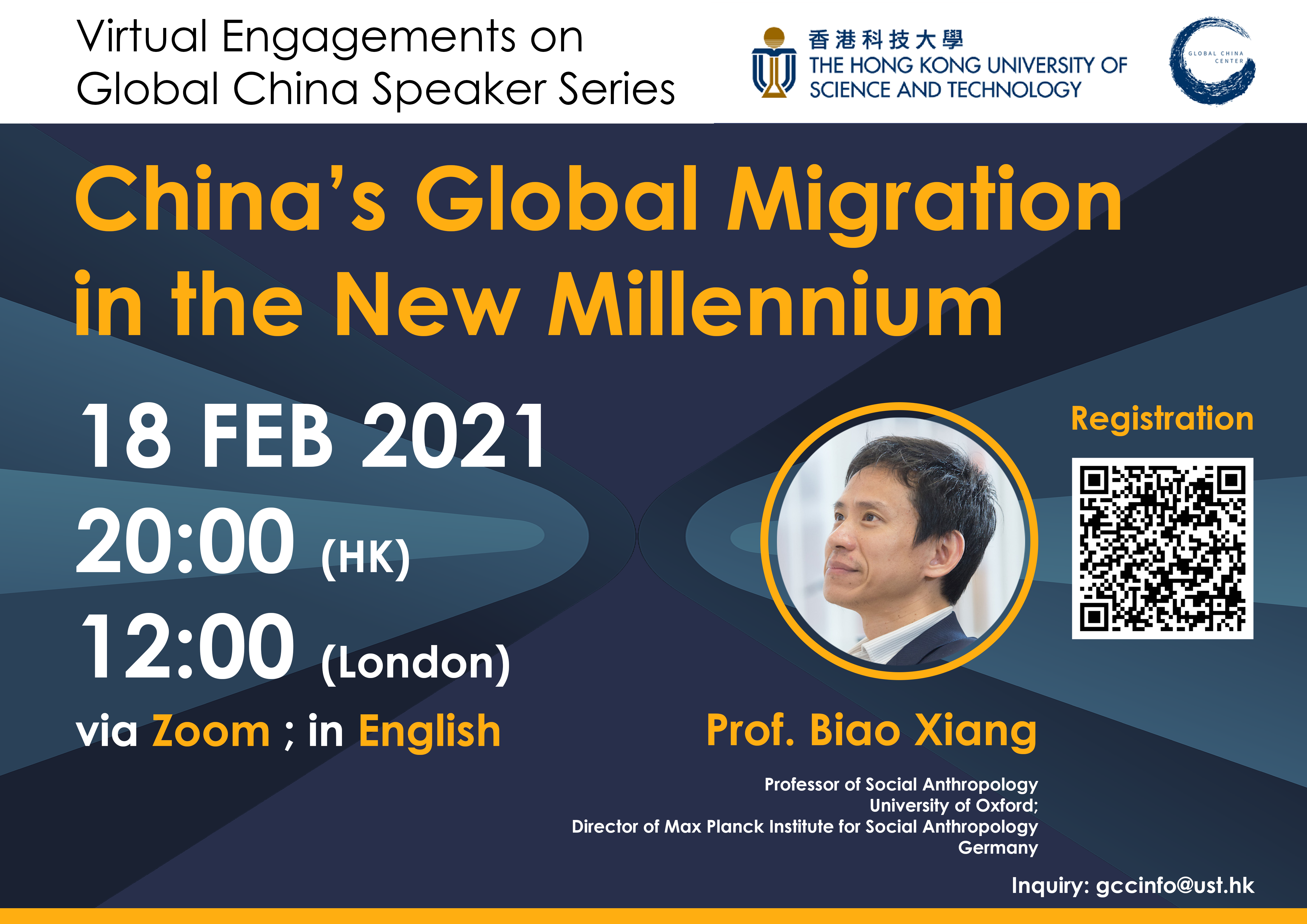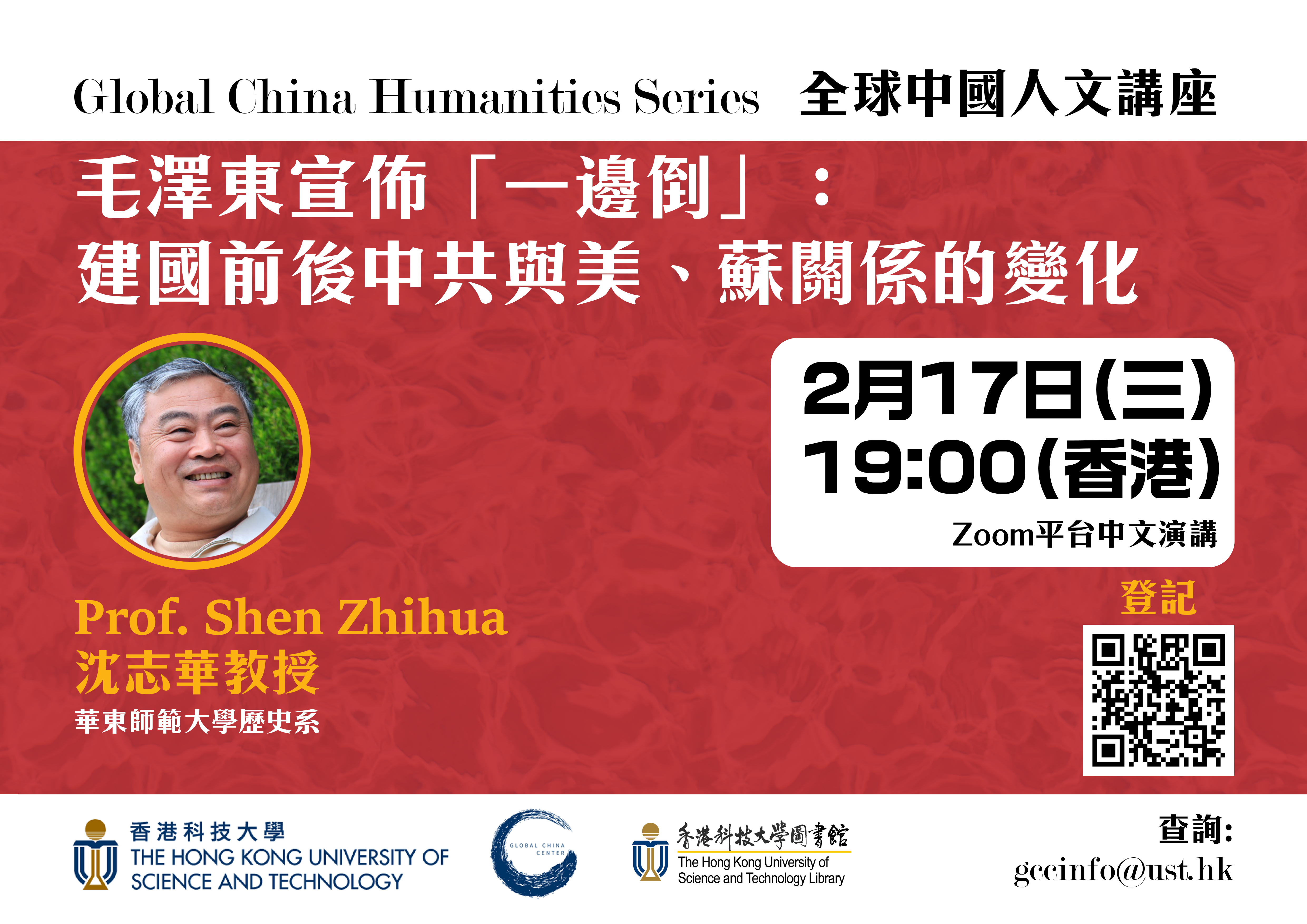A poster for a Chinese high-speed train at the construction site for a bridge over the Mekong River in Laos
Upcoming Events
Past Events
被劫持的戰爭:志願軍戰俘、台灣與朝鮮停戰談判
Zoom
常成的新著The Hijacked War: The Story of Chinese POWs in the Korean War 於2020年由斯坦福大學出版社出版。作者提出韓戰兩段論:上半段是「為領土而戰」,後半段則是「為戰俘而戰」。韓戰因為戰俘問題而多打了一年多,造成重大而無謂的犧牲,但後半段的領土變更卻微乎其微,其主要結局是佔中國戰俘總人數三分之二的一萬四千餘人前往台灣,時稱「反共義士」。學術界與民間都普遍認為該結局是美國主謀或美蔣合謀的結果。然而,本書證明該結局完全出乎美國政府的預料,因為華盛頓輕率的兩大政策——對戰俘實施反共轉化(或洗腦)與「志願遣返」——使得反共戰俘控制了中國戰俘營。另一方面,由於美軍缺乏中文人才,不得不從台灣聘用翻譯與教員,於是國民黨人員進入戰俘營、甚至板門店談判帳篷內,促成反共戰俘與台灣的串聯,並使蔣介石掌握先機。於是韓戰後半段意外地被中國籍反共戰俘與台灣所劫持。 美國政府在戰後對韓戰後半段「為戰俘而戰」的事實諱莫如深,韓戰更在美國成為「被遺忘的戰爭」。在中國大陸,抗美援朝戰爭雖然被頌揚,但戰爭後半段「為戰俘而戰」的實質卻被掩蓋。在台灣,國民黨政府曾高調紀念「反共義士」,但相關歷史記憶與書寫卻受到嚴格的控制與審查。 這次報告還將簡述三名重要戰俘的迥異經歷。一名從中央陸軍官校退學後加入遠征軍、後成為中國第一代傘兵並參與廣州受降的國軍少尉,他在淮海戰役(徐蚌會戰)被俘後脫逃,韓戰爆發後被徵召為司機,入朝後不久叛逃,成為反共戰俘領袖,最終到台灣。一名參加中共地下黨、退學搞革命的清華大學物理系學生,他在韓戰被俘後成為親共戰俘的主要翻譯;一名畢業於中央警官大學的貴州人,在韓戰戰場開小差,後成為反共戰俘領袖,但最終卻冒險犯難前往中立國,經印度抵達阿根廷。 這三個年輕人的生命軌跡在戰火中縱橫交錯,最後匯集在朝鮮半島的戰場上、戰俘營中。他們將如何在紛亂的歷史激流中抉擇、抗爭、或隨波逐流? READ MORE...
Smuggling and State Power in Modern China
Zoom
Smuggling along the Chinese coast has long been a thorn in the side of many regimes. From opium concealed aboard steamships in the Qing dynasty to wristwatches trafficked in the People’s Republic, contests between state and smuggler have exerted a surprising but crucial influence on the political economy of modern China. Seeking to enforce trade regulations and protect critical revenues, successive governments from the late Qing through the early People’s Republic have violently cracked down on smuggling. Tighter regulations, higher taxes, and harsher enforcement all helped to consolidate domestic authority and confront foreign challenges. But these bold interventions did much more. They also sparked widespread defiance, triggering further coercive measures. Smuggling thus animated a paradoxical dynamic in China’s history: it simultaneously threatened state power while inviting repression that strengthened state authority. This lecture chronicles the history of smuggling in modern China by looking at its practice, suppression, and significance. It argues that the fight against smuggling was not simply a law enforcement problem but an impetus to expanding state capacity, broadcasting state authority, and transforming everyday life. Indeed, while smuggling might have operated on the margins of the law, it was far from marginal in remaking China. READ MORE...
China and Africa's industrialization aspirations: a labour perspective
Zoom
There are emerging claims that African countries will follow Asia in their industrialization drive and that Asian firms, notably from China, may act as catalysts of industrial transformations by investing and operating in Africa. This session will look at this new dynamics with a focus on employment outcomes, i.e. job creation for young Africans, working conditions and skill development from a comparative perspective. The main argument is that the creation of new jobs in manufacturing and infrastructure construction contributes to the process of structural transformation through the labour market but not without frictions and challenges. The building of an industrial workforce has never been harmonious. READ MORE...
Taiwan Civil Society in Authoritarian Era 威權主義與台灣公民社會
Microsoft Team
吳介民教授〈從「106大搜捕」看「美麗島事件」前後的台灣民主運動〉內容簡介 「106大搜捕」剛發生時,不少人認為這次鎮壓類似台灣1979年的「美麗島事件」。但「106大搜捕」真的是「香港的美麗島事件」嗎?這場演講將說明,美麗島大逮捕與審判,是國民黨作為外來政權的最後一擊,最終也證明是自我挫敗的一擊。為什麼?因為它根本壓不住台灣社會。 講者將從內外因素進行分析。外部而言,當時東亞冷戰防線正在解除,美中和解使東亞局勢緩和,美國不再需要一個威權的國民黨政權來協助圍堵共產中國。來自地緣政治變遷的力量,解釋了美國對蔣政權態度的轉變。 內部而言:台灣社會力正在茁壯。本土社會要求在國家機器中佔有一定代表性。而面臨政權「外部正當性危機」的國民黨也需要「內部正當性」來維持其統治。因此,開放一定程度的選舉活動,是國民黨不得不做出的妥協,因而持續攪動了自由化的力量。選舉螺旋不斷迫使國民黨統治機器向本土化的方向傾斜。 在價值系統的鬥爭上,國民黨政權的「大中國神話」從1977-78年的「鄉土文學論戰」之後節節敗退。美麗島事件後的「中國結、台灣結」大辯論,更預示了民主化與本土化成為主流價值。 反觀今日香港,國安法建造了阻隔香港與世界的「柏林圍牆」;香港權力結構正在急遽落入「去本土化」、「中國化」;中共勢必企圖根本改造香港,製造「新香港人」。展望前景,自由化的動能何在?除了香港公民社會自身的調整與堅實化之外,中國內部權力結構變化或不變,以及地緣政治關係與美中對抗前景,都將影響中國未來的香港政策。 陳翠蓮教授 〈抵抗的意志:戰後台灣威權統治與民主運動〉內容簡介 二戰結束後,國民黨政府統治台灣,建立起強固的威權體制,獨裁統治幾乎達半世紀之久。威權體制為何能夠發揮強大的社會控制效果?台灣的威權體制有何特性?民眾如何抵抗?如何保存記憶、傳承經驗?台灣的經驗又可以提供香港怎樣的借鏡? READ MORE...
China’s engagement with Brazil since 2000: Key actors, strategies and conflicts
Zoom
Brazil is China’s largest trade partner in Latin America, exporting petroleum, iron ore, soybeans and other agricultural commodities in exchange for manufactured products from China. This mushrooming bilateral trade triggered massive Chinese investments in Brazil, yet diplomatic ties have frayed and Brazil hasn’t joined China’s Belt and Road Initiative. This talk outlines the key actors and interests shaping this relation, arguing their strategies align in advancing an eco-modernist partnership that transcends current diplomatic controversies. The real problems at stake, therefore, emerge from political ecological conflicts within China and Brazil themselves that become aggravated when state and corporate interests from both countries align in a strategic partnership. READ MORE...
二戰後中共勝利的蘇聯因素問題
Zoom
二戰結束、日本投降後的國際國內形勢,並不利於中共用武力推翻國民黨政權。導致蔣介石國民黨失敗的原因很多,任何原因都不是唯一重要的,但對中共的成功而言,蘇聯因素的作用卻是不可或缺的。蘇聯因素的作用是多方面的,蘇軍佔領東北期間武器彈藥方面的協助對中共武裝在東北發展壯大至關重要,然而中共武裝能夠進入東北、在東北廣大區域利用中東鐵路等交通設施,包括能夠在和國民黨作戰期間出入朝鮮、外蒙,利用蘇軍控制的旅大地區等等,顯然是意識形態的因素,以及斯大林基於冷戰思維調整其對美對華政策所帶來的結果。換言之,毛澤東1949年7月公開發表《論人民民主專政》一文,宣布向蘇聯“一邊倒”;1950年2月締結中蘇友好互助同盟條約,毛澤東宣稱這是為中國找到一個“好幫手”,其實都可以看出中共對其戰後成功有著怎樣的經驗總結。 READ MORE...
Rosy Fantasies: Edgar Snow, John Service, Joseph Stilwell, and their China
Zoom
Edgar Snow, John S. Service, and Joseph W. Stilwell had overlapping and intertwined China experiences. They played unexpectedly pivotal roles in the rise of the Chinese Communist Party (CCP). Edgar Snow (1905-72) was a foreign correspondent in China from 1928 to 1941 and returned to the country in 1960, 1964-65, and 1970. He promulgated what was to later become prevailing imagery of the Chinese Communists as agrarian reformers. Born to an American missionary family in Chengdu, John S. Service (1909-99) served as a diplomat to China from 1933 to 1945 and revisited the country in 1971. Taking part in the Dixie Mission to Yan’an, Service emerged as Washington’s major source of information on the CCP. Old China Hand General Joseph W. Stilwell (1883-1946) was stationed in China in 1920-23, 1935-39 and 1942-44. He played a crucial role in changing American perceptions of the Chinese Communists and Chinese Nationalists. Snow, Service, and Stilwell all claimed to sincerely love the Chinese people. But what did they really think of China? This study will zoom in on their perceptions of China as expressed in their own words and deeds and explore how their perceptions impacted the course of history. READ MORE...
Global Medicine in Chinese East Asia, 1937-1970
Zoom
By examining two case studies on how the Chinese diaspora came to shape biomedicine in China and Taiwan from 1937 to 1970, my new book makes the case of the concept of "global medicine." "Global medicine" highlights the multivalent and multidirectional flows of medical practices and ideas circulating the world that shaped Chinese East Asia in the 20th century. The first case study examines how Chinese American women medical personnel established the first Chinese blood in New York and Kunming, China. Second, this talk reveals how Singapore-born and Edinburgh-educated Dr. Robert Lim successfully relocated the National Defense Medical Center from China to Taiwan in 1948 despite the Chinese Civil War's longstanding challenges. This presentation highlights the critical intersections of scientific expertise, political freedoms, and diasporic power in shaping global medicine in China and Taiwan through a critical examination of these two medical encounters between the diaspora and the local Chinese and Taiwanese. READ MORE...
China's Global Migration in the New Millennium
Zoom
China is the world’s largest source country of migrant students (making up 14% of the global total in 2018) and investors (PRC investors made up 75% of the recipients of US EB-5 visas in 2017). Why are those who have benefited the most from China’s development eager to leave China, the rising centre of the world economy? This lecture suggests that China’s global migration in the new millennium reflects the internationalization of life reproduction among those who have means. Chinese migrate overseas in order to benefit from better education, care, air, food and water, and personal and wealth security. They do so with considerable financial cost. All these benefits are meant to maintain and enhance life, instead of making money, thus “reproduction”. This lecture positions China’s on-going outflows in a historical context, and explores the relations between migration, capital accumulation, and shifts in the global political economy. READ MORE...
